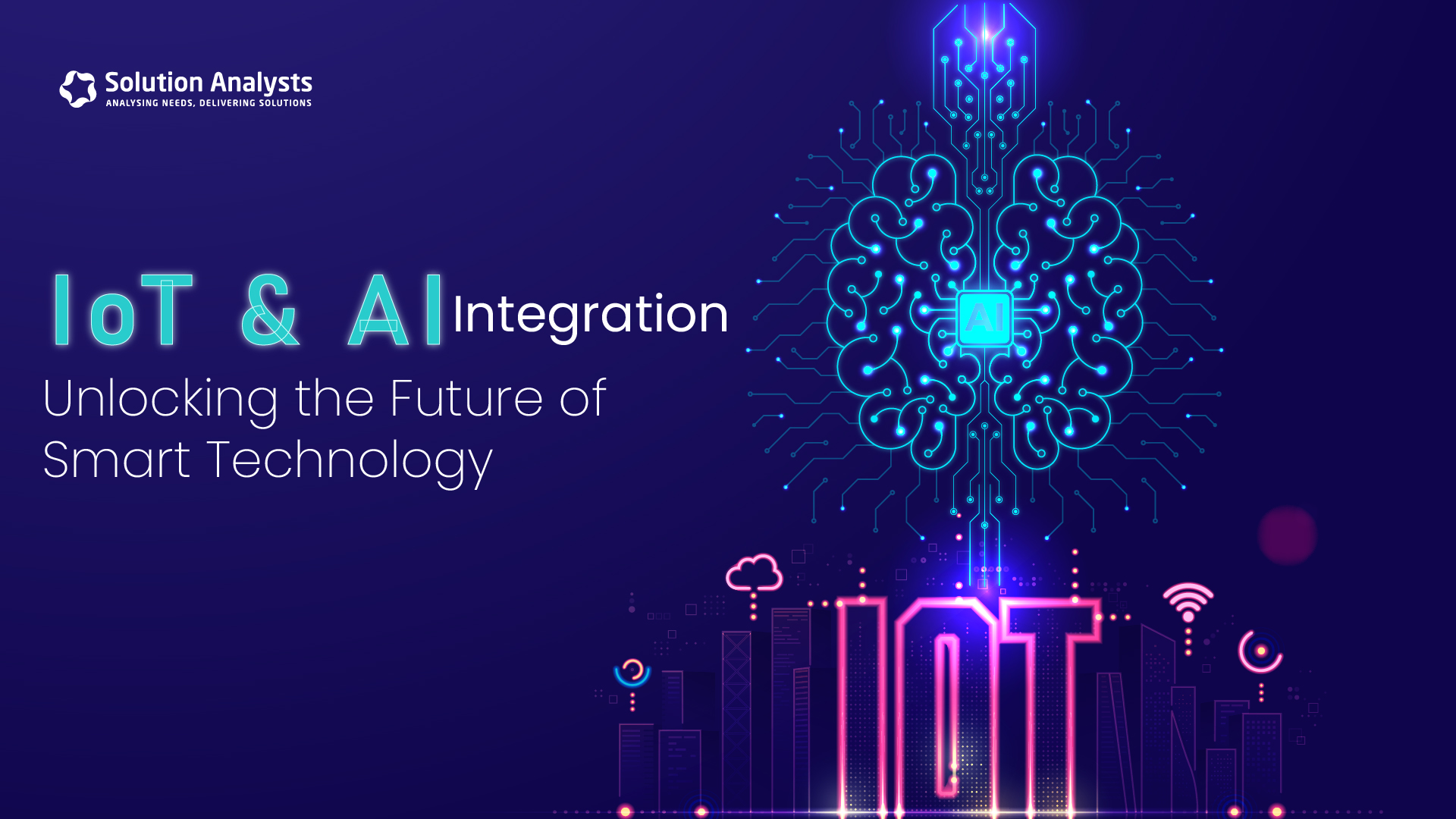
Table of Contents
The Internet of Things (IoT) and Artificial Intelligence (AI) have transformed our world in recent years. Individually, they have the power to revolutionize industries, streamline operations, and enhance everyday life. But when integrated, IoT and AI create a powerful synergy that unlocks new possibilities, driving innovation and transforming how we interact with the world around us. In this blog, we’ll explore the integration of it, the benefits it brings, and how it’s reshaping industries.
Understanding IoT and AI- The Basics
Internet of Things (IoT):
IoT refers to the network of physical devices, vehicles, appliances, and other objects embedded with sensors, software, and connectivity, allowing them to collect and exchange data. These devices can range from simple household gadgets to complex industrial machines.
Artificial Intelligence (AI):
AI includes multiple technologies which helps the machines to mimic human intelligence. This includes machine learning (ML), natural language processing (NLP), and computer vision. AI systems can analyze data, learn from it, and make decisions or predictions based on that analysis.
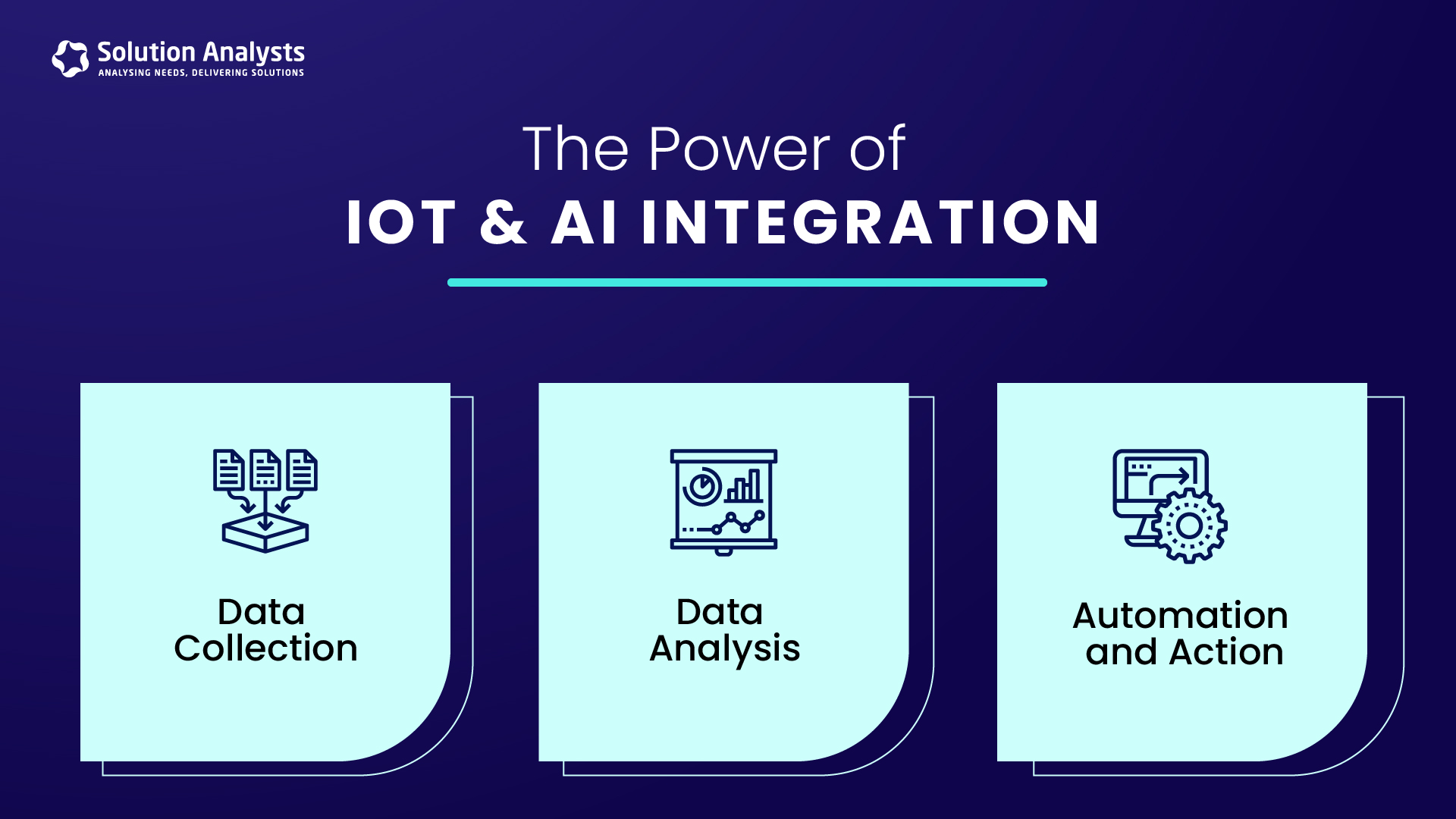
The Power of IoT & AI Integration
When IoT and AI are integrated, they create a system where data collected by IoT devices is processed and analyzed by AI algorithms. The combination of both revolutionizes industrial automation leading to intelligent decision-making and automation. Here’s how this integration works-
Data Collection
IoT devices generate vast amounts of data from sensors, cameras, and other sources. This data can include temperature readings, location information, video footage, and more.
Data Analysis-
AI algorithms analyze this data in real-time or batch mode to identify patterns, make predictions, and derive insights. Machine learning models can be trained to improve accuracy over time.
Automation and Action-
Based on the AI analysis, automated actions can be triggered. For example, a smart thermostat can adjust the temperature based on occupancy patterns, or a predictive maintenance system can alert operators before a machine fails.
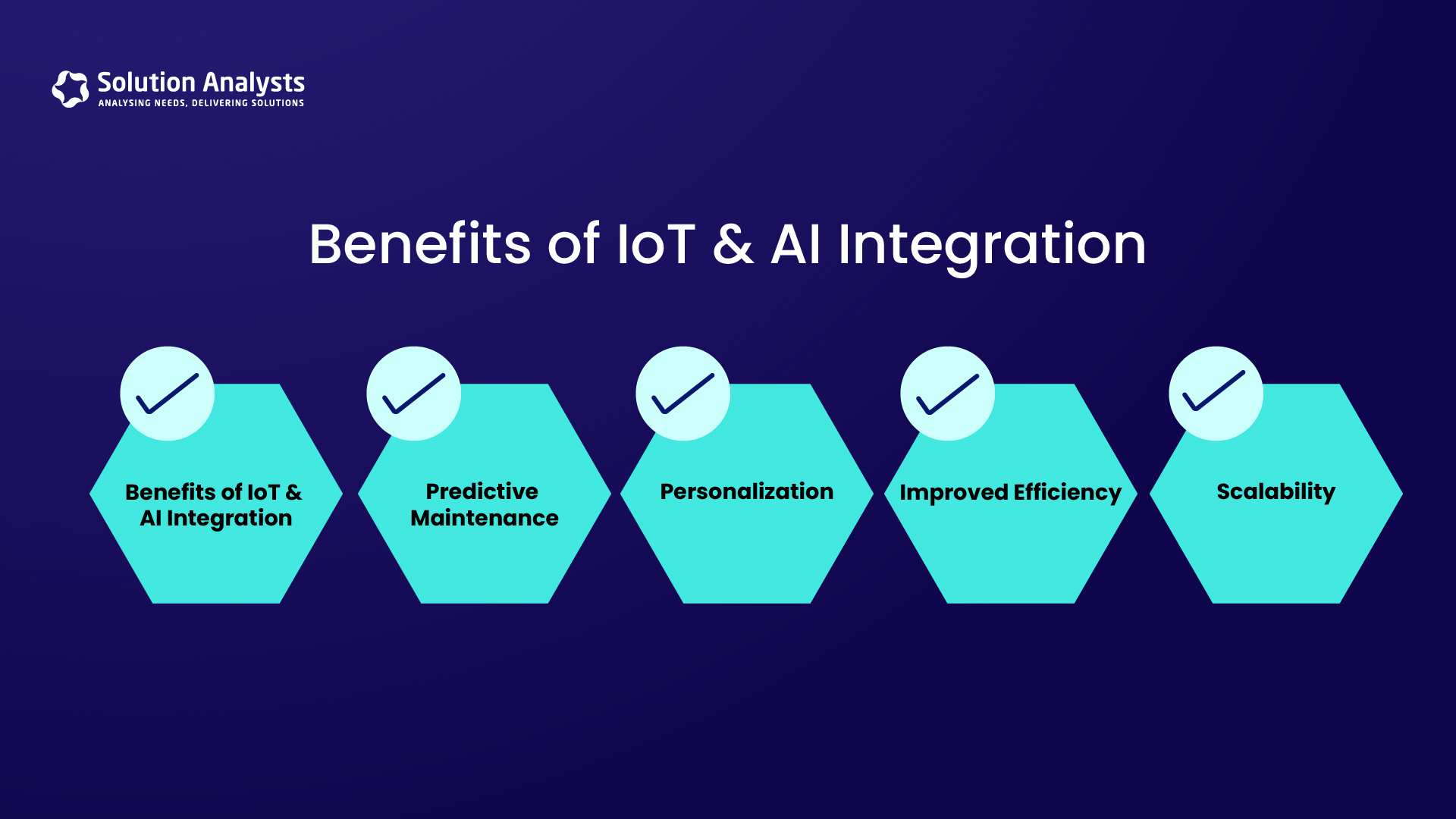
Benefits of IoT & AI Integration
Enhanced Decision-Making-
AI-driven analytics enable real-time decision-making, which allows how AI-powered IoT devices are driving the future of intelligent technology. This leads to more informed and efficient operations.
Predictive Maintenance-
In industrial settings, it is notable how to implement AI in IoT systems for predictive maintenance. AI can analyze data from IoT sensors to predict equipment failures before they happen, reducing downtime and maintenance costs.
Personalization-
IoT and AI integration in retail for personalized customer experiences; for example, in smart homes, AI can learn user preferences and adjust lighting, heating, or entertainment systems accordingly.
Improved Efficiency-
By automating routine tasks and optimizing processes, this integration can significantly improve efficiency in various industries, from manufacturing to logistics.
Scalability-
AI can help manage and make sense of the massive amounts of data generated by IoT devices. When it comes to how IoT and AI together are shaping the future of smart factories, the answer to it is, scalable solutions that grow with the business.
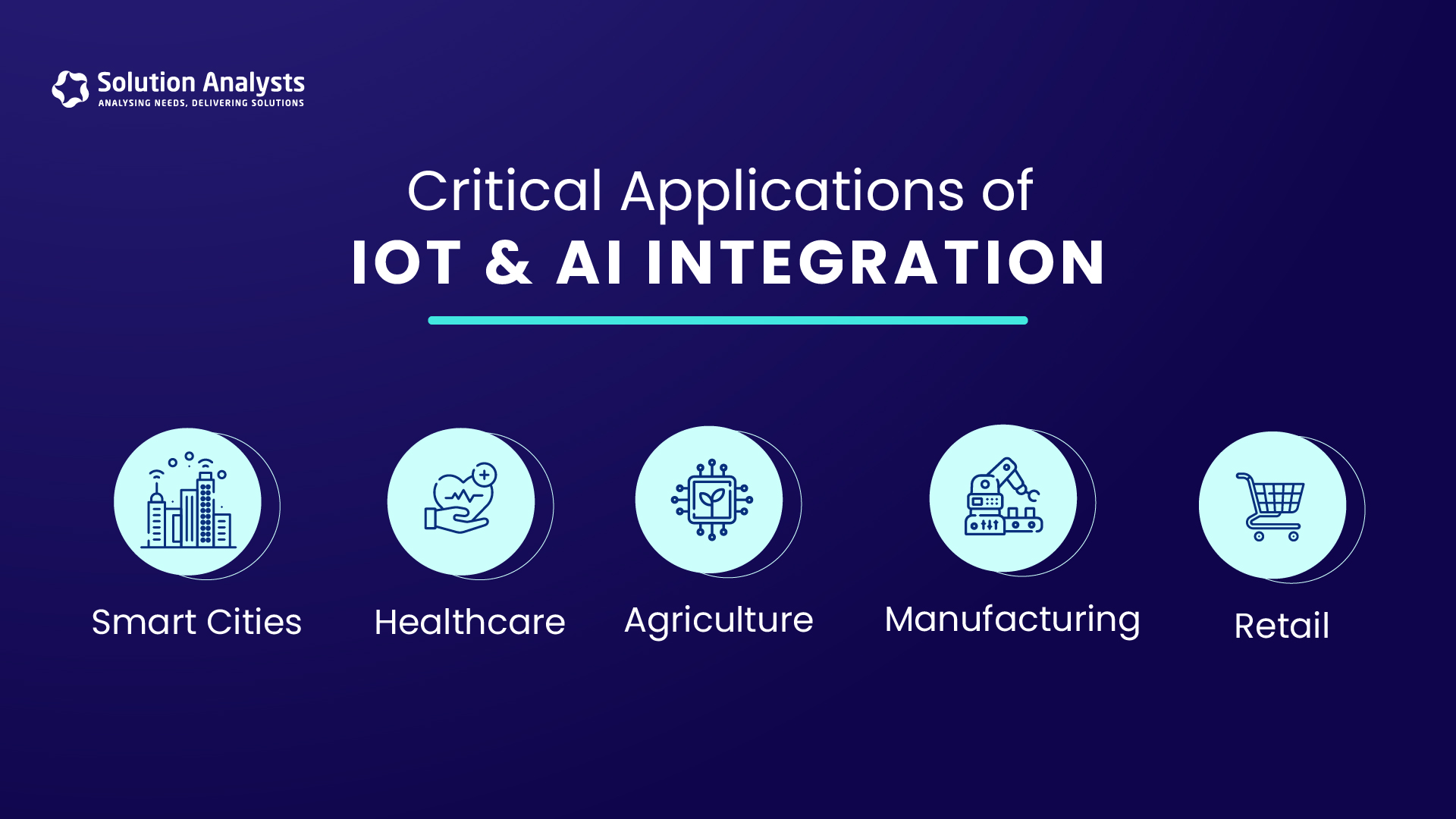
Critical Applications of IoT & AI Integration
The integration of IoT and AI is being applied across various industries, leading to groundbreaking innovations:
Smart Cities
The integration of IoT and AI is transforming urban planning, infrastructure management, and public services in smart cities. This integration is transforming smart home technology; algorithms optimize traffic flow, reducing congestion and commute times. The role of AI in enhancing IoT-based smart cities includes real-time traffic updates and intelligent routing to make data-driven decisions.
Healthcare
In healthcare, devices like wearables and remote monitoring systems collect patient data, which analyzes to provide personalized treatment recommendations, early disease detection, and efficient resource allocation. Future trends include integration for healthcare solutions include accurate data measurements on different parameters for self-diagnosis.
Agriculture
Sensors monitor soil moisture, temperature, and crop health, while analytics provide insights on optimal irrigation, fertilization, and pest control, reducing waste and increasing crop yields.
Manufacturing
IoT sensors monitor equipment performance, and AI-powered analytics predict maintenance needs, reducing downtime and increasing productivity. IoT sensors detect defects and anomalies in real time, enabling manufacturers to take corrective action and improve product quality.
Retail
Sensors track inventory levels, and AI-powered analytics optimize inventory management, reducing stockouts and overstocking. These sensors optimize store layout, product placement, and employee allocation, improving customer experience and increasing sales.
Challenges and Considerations
While the integration of both of these technologies offers significant benefits, it also comes with challenges:
Data Privacy and Security-
With more devices collecting and analyzing data, ensuring the privacy and security of that data is paramount. Robust encryption, access control, and compliance with regulations are essential.
Interoperability-
Ensuring that systems from different vendors can work together seamlessly is crucial for successful integration.
Scalability-
As the number of connected devices grows, the infrastructure must be able to handle the increased data load and processing demands.
Cost-
Implementing these solutions can require significant investment in technology, infrastructure, and expertise.
The Future of IoT & AI Integration
The integration of both of these technology is still in its early stages, but its potential is enormous, such as:
Autonomous Systems-
The impact of this tech on the future of autonomous vehicles will enable systems that can operate independently, making decisions and adapting to changing conditions without human intervention.
Edge AI-
Moving AI processing closer to where data is generated (at the edge) will reduce latency and enable real-time decision-making in critical applications like healthcare and industrial automation.
AI-Driven IoT Platforms-
We’ll see the emergence of platforms that seamlessly integrate the capabilities, providing businesses with powerful tools to innovate and compete.
Conclusion
The new age technology are driving a new era of innovation, transforming industries, and improving our daily lives. By harnessing the power of data and intelligent analysis, businesses can unlock new opportunities, optimize operations, and deliver personalized experiences. As these technologies continue to evolve, their integration will become even more essential, paving the way for more intelligent, more connected systems that will shape the future of technology.
At Solution Analysts, we are dedicated to helping businesses leverage the power of IoT App Deveopment and AI & ML Services to achieve their goals. Our IT Consulting Services team of experienced professionals provides a comprehensive range of services. Contact us today to discuss your specific needs and explore how we can help you achieve your goals. We’re excited to partner with you on your journey to a smarter future.

Deepak Makraiya
Technical Lead – IoT
As a Technical Lead – IoT with over 8.3 years of experience, Deepak Makraiya specializes in Industrial Automation, Industrial Internet of Things (IIoT), Cloud Computing, and AIoT.His expertise lies in designing and implementing cutting-edge IoT solutions, driving digital transformation for industries. With a strong focus on scalable cloud architectures and AI-powered IoT ecosystems, Deepak is passionate about leveraging technology to optimize processes, enhance productivity, and unlock business value in the industrial sector.







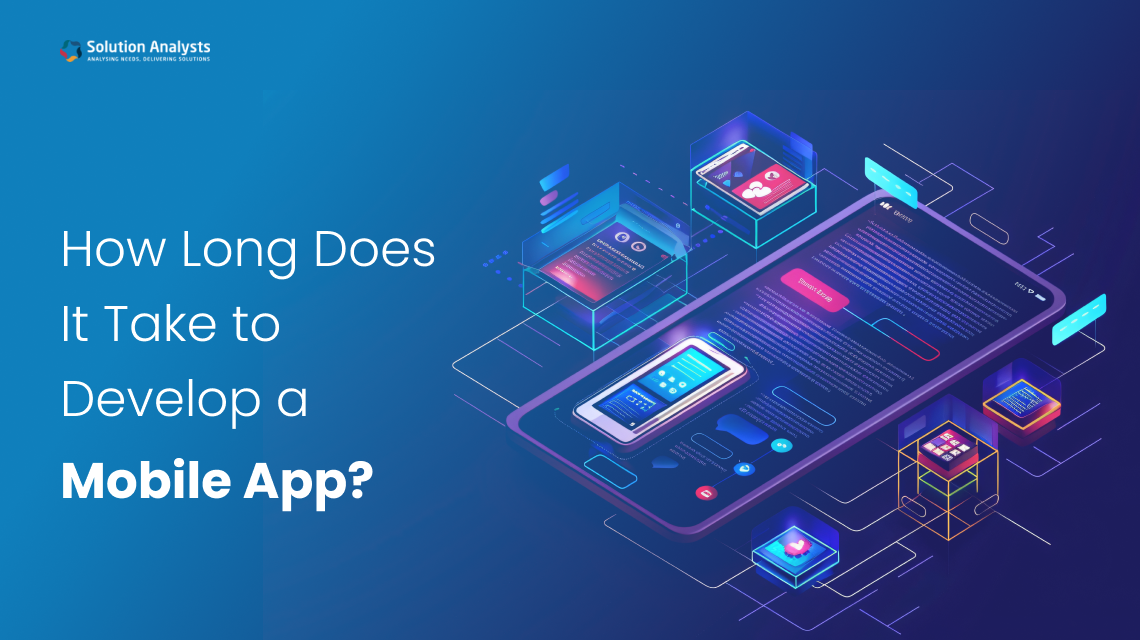

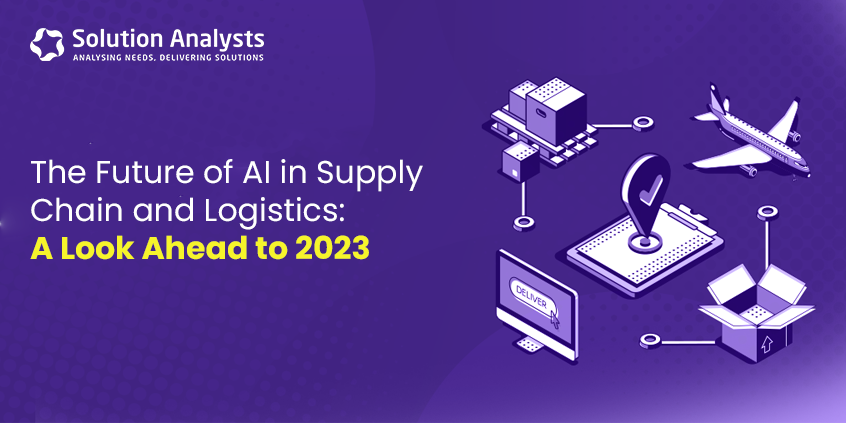
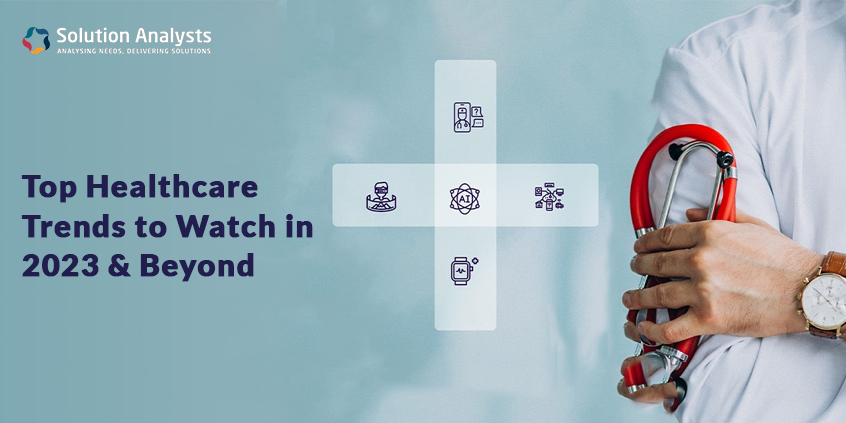
 sales@solutionanalysts.com
sales@solutionanalysts.com solution.analysts
solution.analysts






